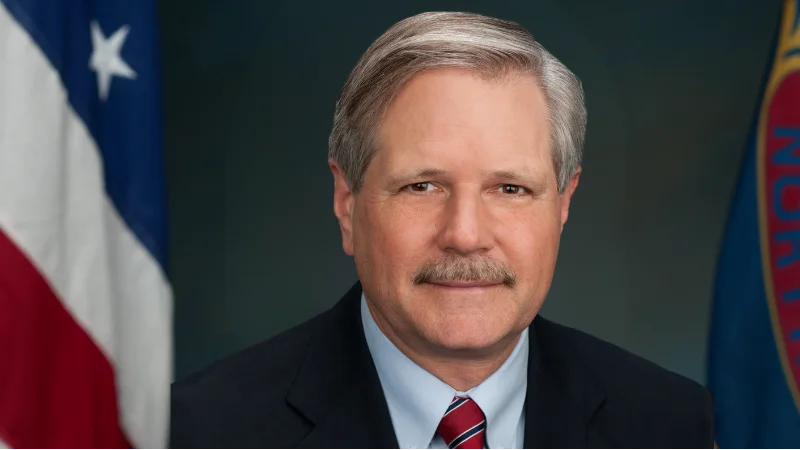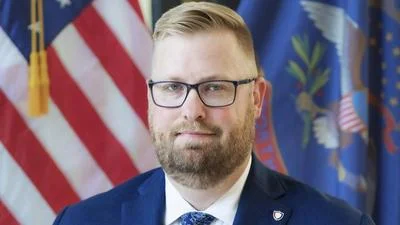Senator John Hoeven, U.S. Senator of North Dakota | Senator John Hoeven Official website
Senator John Hoeven, U.S. Senator of North Dakota | Senator John Hoeven Official website
The U.S. Senate has passed the One Big Beautiful Bill, legislation aimed at making permanent a range of tax cuts and expanding support for American families, small businesses, farmers, ranchers, energy producers, and military personnel. Senator John Hoeven played a key role in advancing the bill.
According to Senator Hoeven, “The One Big Beautiful Bill will provide permanent tax relief, ensuring that Americans can keep more of their hard-earned dollars. This legislation delivers on promises made by President Trump, including securing the border, investing in our military, empowering American energy dominance and supporting our farmers and ranchers. These are the priorities that will make our nation more prosperous and more secure.”
The bill permanently extends individual tax rates from the Tax Cuts and Jobs Act for those earning under $400,000 per year. It preserves $2.6 trillion in tax breaks for this group and avoids an estimated $1,700 tax increase for the average family of four. The legislation also introduces new or expanded deductions: no taxes on tips or overtime pay; an enhanced child tax credit set at $2,200 with $1,700 refundable; permanent death tax relief with increased exemptions; savings accounts for newborns; and a new $6,000 deduction for low- and middle-income seniors—allowing many to owe no taxes on Social Security income.
For small businesses—including agricultural producers—the measure makes several provisions permanent: Section 199A pass-through deductions (including Section 199A(g) for cooperatives), increases Section 179 expensing limits to $2.5 million with higher phaseouts, establishes accelerated depreciation incentives for new facilities constructed between 2025-2028, retains a 30 percent interest expense allowance cap permanently, ensures full domestic research and development deductions continue indefinitely, and keeps bonus depreciation at 100 percent.
Farmers and ranchers will see an improved safety net through increased reference prices under ARC and PLC programs by up to 20%, adjusted regularly to reflect market changes. These updates begin immediately for crop year 2025—delivering tens of millions in relief to North Dakota producers alone this year. Key elements from Senator Hoeven’s FARMER Act are included: premium support is raised across most coverage levels by an additional three to five percentage points; Supplemental Coverage Option is enhanced both in terms of coverage level (from 86% to 90%) and premium support (from 65% to 80%). The sugar program is extended through 2031 with higher loan rates reflecting current conditions.
Livestock disaster assistance also expands: Livestock Indemnity Program now pays up to full market value losses from federally protected predators; weather- or disease-related losses receive compensation at seventy-five percent of value; drought-affected grazing land triggers monthly payments after four consecutive weeks of severe drought status.
In energy policy changes designed to promote U.S. production capacity domestically while rolling back recent regulations tied to climate initiatives: The value of carbon capture credits (45Q) used in oil recovery rises; federal agencies must resume regular lease sales on public lands/waters; royalty rates return to pre-Biden administration levels; the natural gas tax imposed during Biden’s term is repealed; regulatory relief is granted broadly across energy sectors.
Military investments include $25 billion toward the Golden Dome initiative (supporting hypersonic testing and space-based sensors linked with North Dakota missions), plus another $15 billion dedicated specifically toward nuclear deterrence—covering new missile systems at Minot Air Force Base among other upgrades—and additional funds allocated for helicopters as well as quality-of-life improvements such as housing allowances.
Border security provisions involve completing wall construction alongside upgrades like cameras/sensors/lighting/access roads; funding improved screening technologies against trafficking threats; resources provided for hiring/training personnel plus grants equipping local law enforcement partners working with Border Patrol agents.
Water infrastructure receives attention via one billion dollars earmarked for Bureau of Reclamation projects eligible under guidelines such as those governing the Eastern North Dakota Alternate Water Supply Project (ENDAWS).
The bill also aims at reducing government spending by implementing reforms intended to save $1.6 trillion overall while cutting the deficit by over half a trillion dollars.






 Alerts Sign-up
Alerts Sign-up